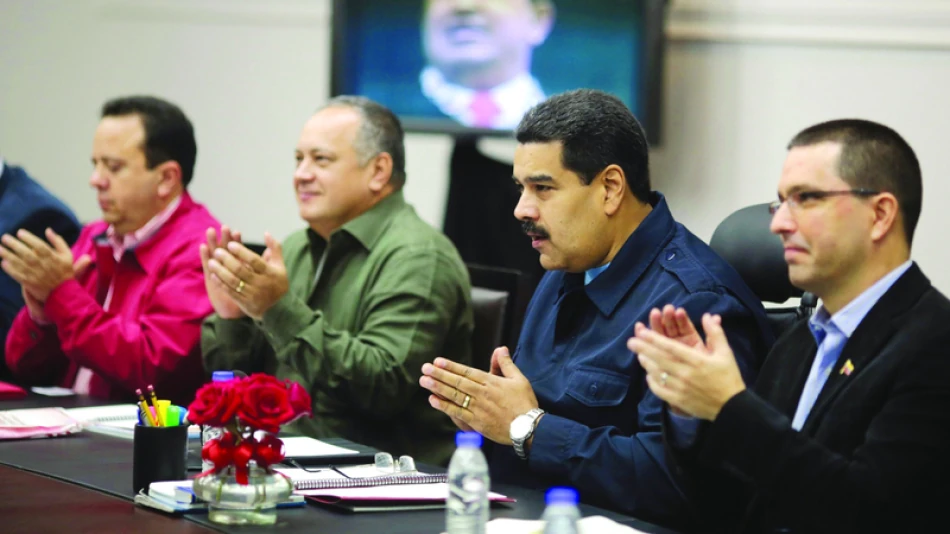
Washington Ramps Up Pressure on Venezuela with Military Moves in Trinidad and Tobago
The US is sending warships, military aircraft, and Marines to Trinidad and Tobago starting tomorrow for joint military exercises. The island nation sits just off Venezuela's coast, making this deployment part of Washington's mounting pressure on President Nicolás Maduro's government. Venezuela's response? "No to crazy war," Maduro pleaded in English.
The timing isn't coincidental. The US has already positioned seven warships in the Caribbean and one in the Gulf of Mexico, officially calling it an anti-drug trafficking operation. But everyone knows the real target is Venezuela and its embattled president.
Over the past few weeks, Washington has carried out nine strikes against suspected drug smuggling boats in the Pacific Ocean and Caribbean Sea. These operations killed at least 37 people, according to US figures compiled by AFP.
Here's what's happening on the ground. The USS Gravely will dock at Trinidad and Tobago's shores from October 26-30. At the same time, the 22nd Marine Expeditionary Unit will conduct joint training exercises with Trinidad and Tobago's defense forces. The western tip of Trinidad sits just dozens of kilometers from Venezuelan shores.
The military posturing escalated when a US B-1B bomber flew over the Caribbean along Venezuela's coastline two days ago. Flight tracking data confirmed this was the second American show of force within a week.
But Trump denied any immediate war plans when reporters asked him at the White House. Still, he made his displeasure clear: "We're not happy with them. They've emptied their prisons into our country." He added that the US wouldn't necessarily ask Congress for a war declaration, saying "we'll simply kill those who enter our land."
Maduro responded with a direct English-language appeal to the US: "No to crazy war, please." Speaking to loyal trade unions, he repeated: "Yes to peace, yes to peace forever, peace forever."
Yet Maduro isn't backing down militarily. Since August, he's ordered a series of military drills and recently highlighted Chinese and Russian equipment tested during these exercises. "Thank you to President Putin, thank you to Russia, thank you to China and thank you to many friends in the world. Venezuela today has equipment to guarantee peace," he said.
The Venezuelan president accused Washington of using anti-drug rhetoric as cover "to impose regime change" and seize Venezuela's massive oil reserves. His defense minister, Vladimir Padrino, warned that any CIA operations against Venezuela would fail, responding to Trump's authorization for covert CIA activities there.
For regional observers, this standoff carries serious economic implications. Venezuela holds the world's largest proven oil reserves, and any military conflict could disrupt global energy markets. Trinidad and Tobago, meanwhile, finds itself caught between its Caribbean neighbor and the US, balancing economic interests with security concerns.
The drug trafficking angle gives Washington legal cover for its naval deployment, but the broader context suggests this is about geopolitical control in America's backyard. With Chinese and Russian military equipment flowing into Venezuela, the US sees a strategic threat developing just 1,600 miles from Florida.
Most Viewed News

 Sara Khaled
Sara Khaled






